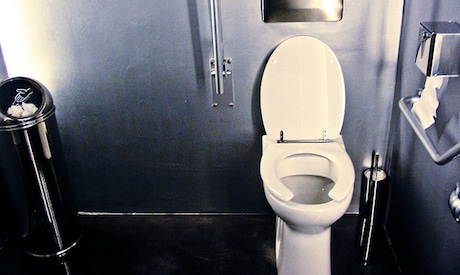
Poop is not necessarily something that we like to discuss. But the fact of the matter is your poop says a lot about your overall health. Specifically, it says a lot about your digestion, which is closely tied to your immune health. Let’s take a closer look at whether your poop is normal.
Read More About Improving Digestion
Normal Poop
Your poop is 75 percent water, plus fiber, live and dead bacteria, various cells, and mucus. The color, timing, size, and even whether is sinks or floats are tied to your health. A healthy stool should be medium to light brown, up to 18 inches long, and not broken apart. It should have a natural smell but not be disgusting and it should slowly sink.
How Often Should You Go?
The normal range of bowel movements is three per day to three per week. It depends on the person, but if you’re going more or less than that, you’re out of the normal range. Constipation can be caused by pregnancy, child birth, not getting enough exercise, emotional stress, and not eating a balanced whole foods diet. Dehydration, narcotics, and food allergies can also cause constipation.
If you’re suffering from diarrhea, the other end of the spectrum, it could be due to a viral infection, parasites, or emotional stress. If diarrhea lasts for an extended period of time, it could be the result of irritable bowel syndrome or Crohn’s disease.
Other Abnormalities
If your bowel movement smells really bad it could be the result of Celiac disease, Crohn’s disease, or pancreatitis. Bowel movements don’t smell good (they are waste you know) but they shouldn’t stink the whole house up.
Black stool can be an indication of bleeding in the intestinal tract. If it’s a dark green color, it’s likely the result of iron supplements. And red stool means there may be bleeding in the large intestine, rectum, or anus.
How to Have a Normal Bowel Movement
If you want to go more regularly make sure that you’re eating a whole foods diet made up of tons of fruits, vegetables, nuts, seeds, whole grains, and legumes. The addition of fermented foods like sauerkraut and pickles can also be good for your digestion. Also
ensure that you’re always hydrated. If you drink coffee or alcohol, have extra water. Finally, make sure that you’re exercising regularly and dealing with any emotional stress that may be impacting your digestion.
Image: Laurent Lavì Lazzeresky










